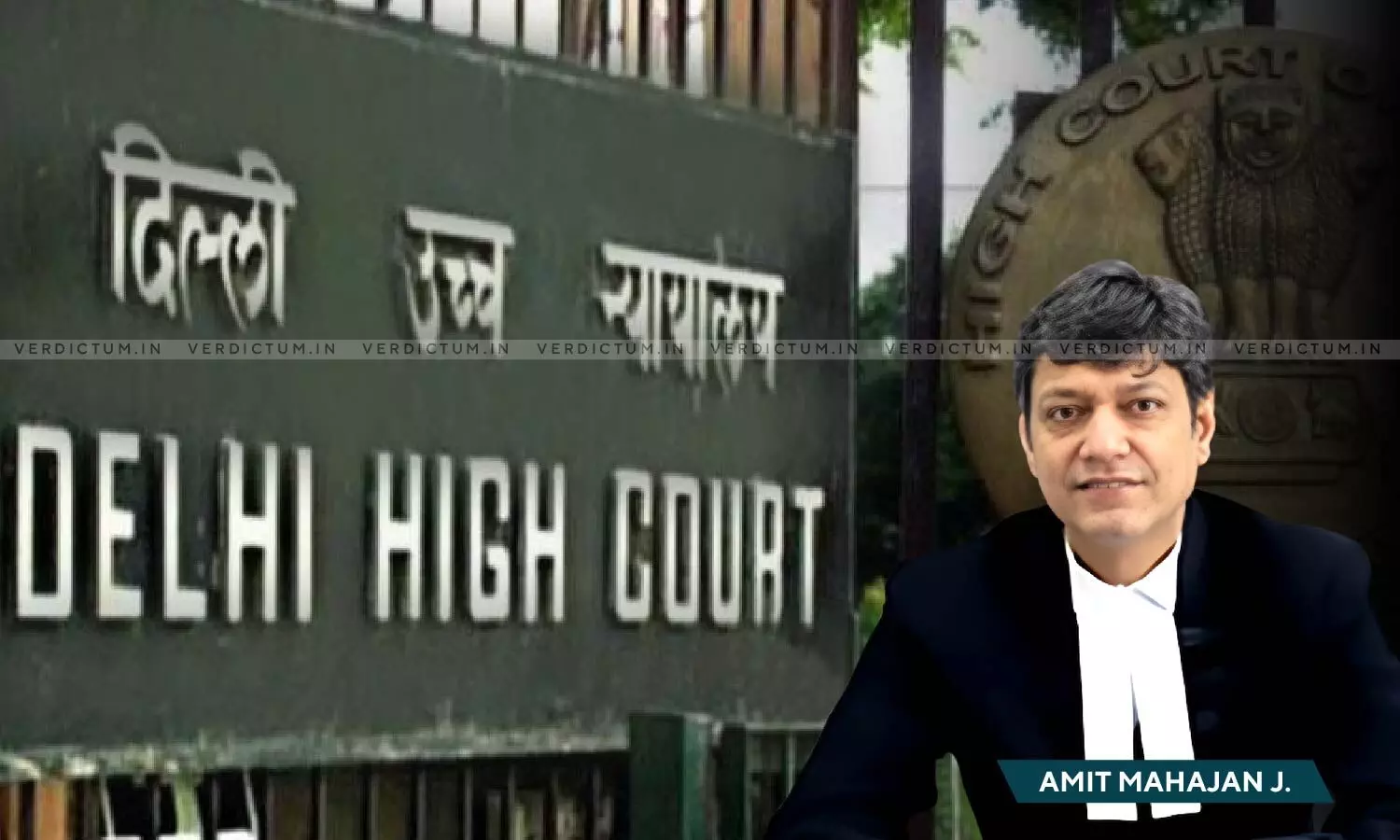
Justice Amit Mahajan, Delhi High Court
Presumption U/S 139 NI Act Is Not Absolute & May Be Controverted By Accused: Delhi High Court
 |
|The Delhi High Court dismissed an Appeal filed against the Judgment of the Metropolitan Magistrate by which the accused was acquitted under Section 138 of NI Act.
The Delhi High Court observed that the presumption under Section 139 of the Negotiable Instruments Act, 1881 (NI Act) is not absolute, and may be controverted by the accused.
The Court observed thus in an Appeal filed against the Judgment of the Metropolitan Magistrate (MM) by which the accused was acquitted of the offence under Section 138 of NI Act.
A Single Bench of Justice Amit Mahajan enunciated, “At the same time, it is also pertinent to note that the presumption under Section 139 of the NI Act is not absolute, and may be controverted by the accused. In doing so, the accused only ought to raise a probable defence on a preponderance of probabilities to show that there existed no debt in the manner so pleaded by the complainant in his complaint/ demand notice or the evidence. Once the accused successfully raises a probable defence to the satisfaction of the Court, his burden is discharged, and the presumption ‘disappears.’ The burden then shifts upon the complainant, who then has to prove the existence of such debt as a matter of fact.”
The Bench reiterated that once the execution of the cheque is admitted, the presumption under Section 118 of the NI Act that the cheque in question was drawn for consideration and the presumption under Section 139 of the NI Act that the holder of the cheque received the cheque in discharge of a legally enforceable debt or liability are raised against the accused.
Advocate Deepak Sharma represented the Appellant while APP Sunil Kumar Gautam and Advocate Samridhi Singh represented the Respondents.
Factual Background
As per the Complainant, in 2015, he advanced a friendly loan of Rs. 10 lakhs to the Respondent-accused. It was alleged that the same was duly acknowledged by the accused who executed a promissory note and a receipt in the presence of two witnesses and also issued a post-dated cheque for a sum of Rs. 10 lakhs. Allegedly, the said cheque on presentation got dishonoured and returned unpaid vide return memo with remarks “funds insufficient”.
Thereafter, the Complainant sent a legal demand notice to the accused. Subsequently, on the failure of the accused to repay the cheque amount within the stipulated period despite the issuance of notice, the Complaint was filed under Section 138 NI Act. The MM acquitted the accused noting that at the time of framing of notice, the accused only admitted to receiving Rs. 5 lakhs from the Complainant. Being aggrieved by the acquittal of the accused, the Complainant approached the High Court.
Reasoning
The High Court after hearing the contentions of the counsel, noted, “It is pertinent to note that in terms of the dictum of the Hon’ble Apex Court in Rajesh Jain v. Ajay Singh (supra), once Respondent No. 2 was able to raise a probable defence by either leading direct or circumstantial evidence to show that there existed no debt/liability in the manner as pleaded in the complaint/ demand notice/ affidavit evidence, the presumption raised against him “disappeared”. The onus then “shifted” on the petitioner to establish as a matter of fact that there in fact existed a debt/liability, and a failure to do so would culminate in the dismissal of his complaint case.”
The Court remarked that even if the Complainant’s case is taken at the highest, yet, since accused had already raised a probable defence to dislodge the presumptions raised against him, the onus shifted to the Complainant to show that there existed a debt/liability as on the date appearing on the impugned cheque.
“The acquittal of Respondent No. 2 was not premised on whether the version of Respondent No. 2 was without blemish per se or not but on the fact that the petitioner failed to show that the sum of ₹9,00,000/- as received by him pertained to a separate transaction. Once Respondent No. 2 had raised a probable defence to the satisfaction of the Court, the presumptions under Sections 118(a) or 139 of the NI Act were no longer in the favour of the petitioner”, it further said.
The Court added that the Complainant having failed to lead evidence to show the existence of the debt/liability, his contentions that there were contradictions in the version of accused or that the presumptions under Section 118 and 139 of the NI Act were in his favour, do not bolster the case of the Complainant.
“It is pertinent to note that a decision of acquittal fortifies the presumption of innocence of the accused, and the said decision must not be upset until the appreciation of evidence is perverse”, it concluded.
Accordingly, the High Court dismissed the Appeal.
Cause Title- Ashok Gaur v. State of NCT of Delhi & Anr. (Neutral Citation: 2025:DHC:5217)
Appearance:
Appellant: Advocates Deepak Sharma, Saurabh, and Nikunj Sharma.
Respondents: APP Sunil Kumar Gautam, Advocates Samridhi Singh, and A.K. Singh.